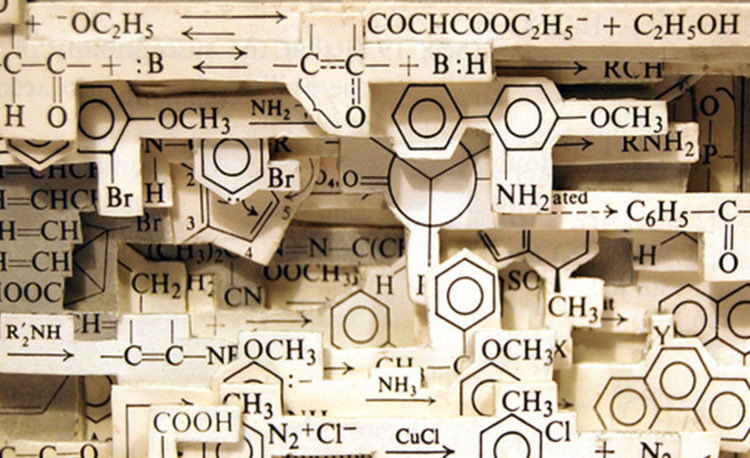About Us


About Us
Welcome to onlineorganicchemistrytutor.com, your trusted partner in conquering the world of organic chemistry! We understand that organic chemistry can be one of the most challenging subjects for students, and that’s why we’re here to provide top-tier homework assistance, assignment solutions, and personalized tutoring to help you succeed.
Who We Are
We are a dedicated team of experienced chemistry tutors, educators, and subject matter experts who are passionate about making organic chemistry easier to understand. With years of academic experience and a deep understanding of organic chemistry principles, we aim to provide students with the tools and support they need to master even the most complex topics.
Our Mission
At onlineorganicchemistrytutor.com, our goal is simple: to help students excel in organic chemistry by providing high-quality, step-by-step guidance and resources. We’ve got you covered whether you’re struggling with reaction mechanisms, stereochemistry, or spectroscopy. We believe that with the right support and strategies, every student can not only pass their organic chemistry course but truly understand and appreciate the subject.
What We Offer
We offer a wide range of services designed to meet the unique needs of every student, including:
Homework and Assignment Help: Struggling with an organic chemistry problem? We provide detailed, clear solutions to ensure you understand each concept thoroughly.
Personalized Tutoring: Our one-on-one tutoring sessions are tailored to your specific learning style and academic needs, helping you to overcome challenges and achieve your goals.
Sample Solutions: Browse our library of expertly crafted sample solutions to common organic chemistry problems. Learn how to approach difficult assignments and improve your problem-solving skills.
Study Resources: FrWeffer various resources and guides to support your learning.
, from reaction mechanisms to spectroscopy techniques. Why Choose Us?
Expert Tutors: Our team comprises highly qualified professionals with advanced degrees in chemistry. We’re passionate about teaching and simplifying organic chemistry.
24/7 Support: Organic chemistry doesn’t wait, and neither do we! Our support is available around the clock to help you whenever you need assistance.
Affordable Pricing: We believe that quality education should be accessible to all. That’s why we offer competitive rates and flexible payment plans.
Proven Results: HuOurailored support and expert guidance.
have helped hundreds of students improve their grades and gain confidence in organic chemistry our Approach
At onlineorganicchemistrytutor.com, we focus on a student-centered approach. We believe that every student learns differently, so we customize our methods to fit your learning style. Whether you prefer visual aids, hands-on problem-solving, or step-by-step explanations, we aim to make learning engaging and effective.
Get in Touch
We’re always here to help! IFeel free to reach out ifyou have any questions or want to learn more about how we can support your organic chemistry journey, Whether you’re tackling a specific assignment or want ongoing tutoring support, onlineorganicchemitrytutor.com is your go-to resource.
About Organic Chemistry:
Organic Chemistry is a basic core science that includes the study of the compounds of carbon. In our surroundings, most of the things are made up of organic molecules. For example, the food we eat is made up of carbohydrates, proteins, lipids, medicines we take for disease, colors for clothes, various polymers, petrol for vehicles, LPG for cooking food, are all organic compounds. Our life is totally depended on organic molecules even our genetic material DNA and RNA are made up of organic molecules. Petroleum and coal are two major sources present in nature for simple organic compounds. Larger and more complicated compounds can be synthesized from using simple compounds as building blocks. Organic chemistry is fundamental to biochemistry and medicinal chemistry. We can subdivide organic chemistry into following topics:
- Structure and Properties of Organic Compounds
- Alkanes (Free Radical Substitution)
- Stereochemistry (Stereoisomers)
- Alkyl Halides (Nucleophilic Aliphatic Substitution)
- Alcohol and Ethers
- Role of Solvents
- Alkenes (Elimination & Electrophilic and Free Radical Addition)
- Stereoselective and Stereospecific Reactions
- Dienes (Conjugation and Resonance)
- Alkynes
- Cyclic Aliphatic Compounds
- Aromaticity (Benzene)
- Electrophilic Aromatic Substitution
- Aromatic-Aliphatic Compounds (Arenes and Their Derivatives)
- Spectroscopy and Structure (IR, NMR, CMR and Mass Spectroscopy)
- Aldehydes and Ketones (Nucleophilic Addition)
- Carboxylic Acids
- Functional Derivatives of Carboxylic Acids (Nucleophilic Acyl Substitution)
- Carbanions I (Aldol and Claisen Condensation)
- Carbanions II (Malonic Ester and Acetoacetic Ester synthesis)
- Amines
- Phenols
- Aryl Halides (Nucleophilic Aromatic Substitution)
- α,β-Unsaturated Carbonyl Compounds (Conjugate Addition)
- Molecular Orbitals (Orbital Symmetry)
- Symphoria (Neighboring Group Effects)
- Heterocyclic Compounds
- Macromolecules (Polymers and Polymerization)
- Lipids (Fats and Steroids)
- Carbohydrates (Monosaccharides, Disaccharides, and Polysaccharides)
- Proteins and Nucleic Acids (Molecular Biology)
Organic Chemistry Online Tutoring, Homework and Assignment Help:
We are providing here all type of services related to organic and medicinal chemistry, which includes online tutoring, homework and assignment help of organic chemistry, interpretation of spectroscopic data, retrosynthesis of various organic compouds, organic lab report writing etc.
Organic Chemistry: A Review
Organic chemistry is the chemistry of carbon compounds. Initially, chemical compounds were divided into two categories, organic and inorganic based on their source of generation. Organic compounds were those obtained from living organisms like animals and plants; Inorganic compounds were those obtained from mineral (non-living) sources.
Up to 1850, chemists believed that organic compounds have their origin from living organisms and cannot be synthesized from inorganic compounds. Today, although compounds of carbon can be isolated from plants and animal sources, as well as these, can be synthesized in the laboratory. These organic compounds generally synthesized from other organic compounds and sometimes from inorganic substances like carbonate and cyanide etc. But even after such development of science, it was convenient to keep the name organic to describe these carbon compounds.
Petroleum and coal (fossil fuels) are two natural resources for organic compounds. Now a day’s petroleum is majorly consumed for power and energy supply rather than for making organic chemicals. However, there are other sources of power also available like solar, wind, nuclear energy etc. But we are consuming organic material “Petroleum” at a very fast rate compared to other sources.
This high consumption generate a question that what carbon element has so special that makes it so useful compared to other elements of the periodic table? The number of compounds having carbon is so huge that these have to divide into families and subfamilies. But no other element of the periodic table has such a huge number of compounds.
The most striking reason behind it is that carbon atoms can attach themselves with one-another to a very large extent that is not possible for other atoms of the periodic table. The great thing about organic compounds is this that slight change in carbon and hydrogen makes a different compound with different chemical and physical properties.
Finally, we can say that our life is completely depended and surrounded by organic molecules. Medicines, dyes, paper, ink, paints, plastics, gasoline, rubber, cholesterol, lipids, carbohydrates, proteins, DNA, RNA and genes are all made up of organic molecules.
